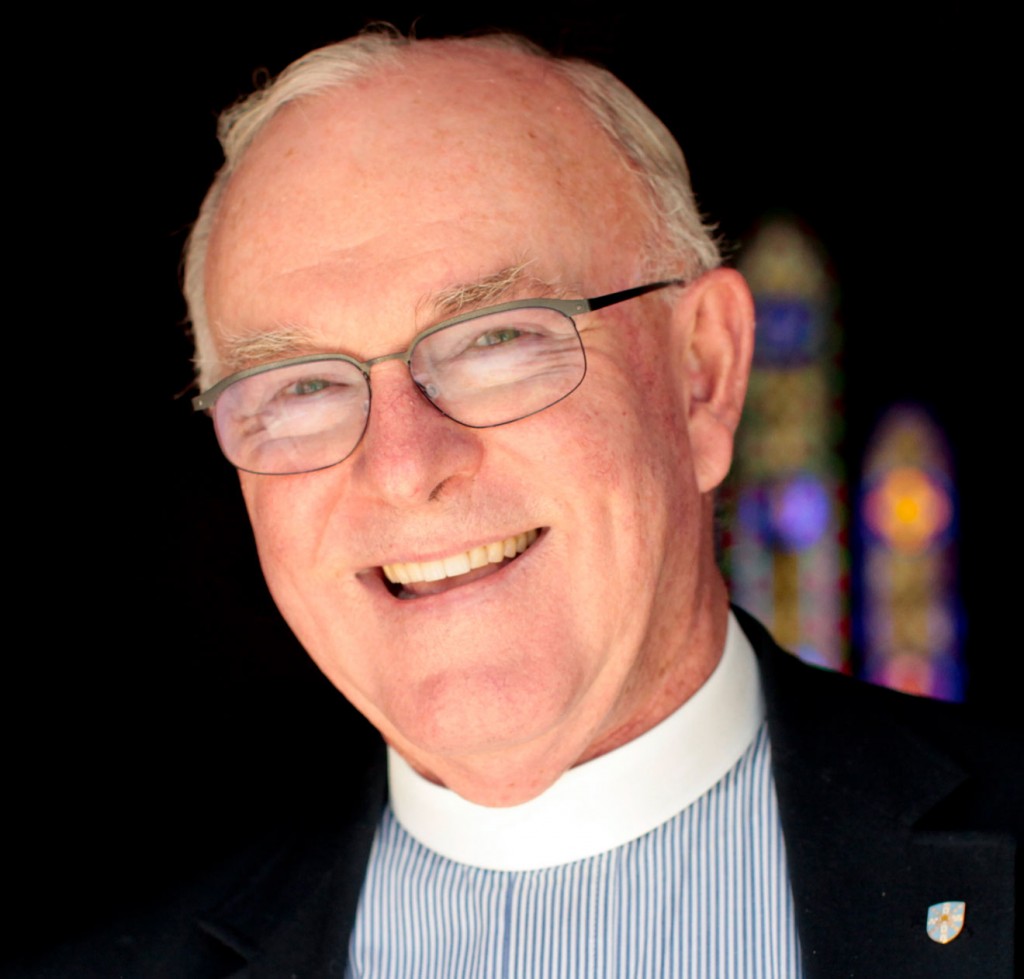Kevin MacDonald
Occidental Observer
October 19, 2014

In his The Rise and Fall of Anglo-America, Eric Kaufmann described liberal Protestantism as one of several liberal traditions in American history. Although it had its origins in the 19th century, by 1910 there arose a liberal Protestant elite committed to “universalist, humanitarian ethics.” Elite Protestants (but not the great mass of Protestant Americans) were opposed to immigration restriction in the 1920s and were at the vanguard of the Civil Rights movement in the 1960s. They embraced the dream of universal humanity, and they developed idealized images of Jews who, after World War II, had assumed the leadership of liberal causes in the U.S.
But, as Kaufmann notes, Anglo-America has lost its political power and has been deposed from its position as cultural trend setter. Some of the fallout from the demise of elite Protestants can be seen in Mark Oppenheimer’s Tablet interview of Bruce Shipman — the Episcopalian chaplain who ran afoul of the Israel Lobby (my take). The interesting part:
Oppenheimer is recounting a conversation he had with a leftist Jewish friend who is critical of Israel:
[Oppenheimer]: I said to him, “You spend so much time among anti-Zionists. How can you tell which ones, which minority, are anti-Semites?” And he said, “Well, that’s easy.” He said, “It’s the liberal Protestants. The Jews aren’t anti-Semitic, even if they’re called self-loathing. And the Muslims aren’t anti-Semitic, because they get us.” He said they understand everything about us, as we understand everything about them. He said it’s the well-meaning leftie Protestants. They profess a deep spiritual kinship with Jews, they’ve often lived in the Middle East, they’ve led tours there.
[Shipman]: He’s talking about me! [laughs]
Muslims and Jews understand each other; they see each other as implacable enemies and they understand each other’s fanaticism, their mutual hatred, and the impermeable barriers between their groups. As Christine Amanpour showed in God’s Warriors (see also here), religious fanaticism in Israel and among Muslims is the order of the day in the Middle East. Indeed, the social structure of society fragmented into mutually hostile groups is endemic to the area and likely biologically based (see here, xxv-xxxi). Neither expects any quarter. A fight to the death.
But the Anglican chaplain is a philo-Semite. He comes from an individualistic culture, where moral universalism comes naturally (Ibid., xviii-xxv). He has an idealized image of Jews as moral paragons, partly as a result of the success of the post-World War II propaganda blitz by the organized Jewish community. He correctly sees Jews in the US and throughout the Jewish diaspora in the West as leaders in the triumph of liberal culture and its moral imperatives framed in terms of a universal humanity — moral idealism by any other name. His image of Jews is doubtless that throughout their history in Christian Europe, Jews have been always been moral paragons who have been savagely persecuted for reasons completely unrelated to their behavior. The idea that Jews have always been tough, hard-nosed ethnic competitors whose interests have often conflicted with those they have lived among is completely foreign to him.
This image of Jews as moral paragons was easily grafted onto the mainline Protestantism and eventually even Catholicism — the latter by completely rejecting its history and theology. The result is that Shipman, along with so many other Christians, has a “deep spiritual kinship with Jews.”
But the behavior of Israel leads to an obvious contradiction in the worldview of Shipman and other Christians who have been led down the same path:
[Oppenheimer]: He said, “But they fundamentally see Jews as, their image of the contemporary Jew is of a rich, crass, Zionist who distorts American politics and is bad for the idealized Jew whom they love. Whom they may or may not know any of anymore.
And, I knew exactly what he was talking about. And I’m not saying that’s you. At all. I don’t know you. But I know people like that … And what I sometimes think is, about the philo-Semitic liberal Protestant experience, is that they don’t understand … why the contemporary liberal Jew might be a Zionist. That in their mind the last good Zionist went out sometime around the late 1960s, was a socialist on a kibbutz somewhere, was totally secular, and that they don’t actually get the lived experience of being, say, a religious Jew in Brussels today.
I think there’s a truth that one can deeply love Jews and have loved Jews, but feel that there are no good Jews left. Except the ones that are entirely secular and anti-Zionist. That there are no good Jews left like there once were.
[Shipman]: That’s not my experience.
Although Shipman denies it (probably wanting to avoid yet more trouble), Oppenheimer is essentially saying that the image of Jews as crusaders for human rights and social justice conflicts with the reality of Jewish behavior in Israel. It also conflicts with the reality that the organized Jewish community in America (to paraphrase Oppenheimer), distorts American politics on behalf of Israel. In other words, America is deeply complicit in Israeli crimes. Shipman thus feels resentment, or at least Oppenheimer reasonably imputes resentment. It must be dawning on Shipman that a central aspect of his worldview is completely mistaken — that essentially he has been duped. Jews are not the moral paragons of his imagination.
I see Oppenheimer laughing inwardly at Shipman’s naiveté. Jews rode the image of morally pure, irrationally persecuted victims of Christian Europe to the pinnacle of power in America, to the point that Shipman was forced to resign from his position at an elite university —a university that was founded by Protestants like Shipman but whose last two presidents have been Jewish. And this because he stated the obvious — that Israeli behavior was leading to anti-Jewish attitudes in Europe.
But now White Protestants are on the outside looking in, as the organized Jewish community with the complicity of Yale uses its power to end the careers of those who criticize the support for Israel among diaspora Jews.
The same issue came up in the Tablet interview with Benjamin Ginsberg, commenting on the contemporary resentment of the formerly elite White Protestants toward Jews.
[Ginsberg] It’s not 1930s anti-Semitism, but it’s a resentment. It’s a resentment of a particular evil that the Jews have done, which is the Jews have undermined WASP America but refuse to do the same thing in their own country.
You know, there’s an old joke: Three elderly Jewish Communists in the Bronx are talking. They’re in their eighties. One is in a wheelchair. So they say, “Abie Cohen, have you heard from him lately?” “Abie, he’s had some health problems but he’s living in Los Angeles in a nursing home, still working for socialism.” “All right, what about Mike Abramowitz, have you heard from him?” “Well, you know Mike is in rehab, he fell, he broke his hip, a lot of problems. But even in the nursing home he’s fighting for socialism!” So someone says, “What about Moe Goldberg?” “Oh, Moe, he moved to Israel, didn’t you know that?” “Well, is he fighting for socialism?” The guy answers, “In his own country? What kind of man do you think he is?!”
As I noted,
Again we see the double standards and hypocrisy inherent in a movement led by strongly ethnocentric activists intent on displacing the previously dominant Protestant elite and in the process becoming an elite themselves. Policies that are advocated in the Diaspora are rejected for Israel. The Protestant elite that was endlessly criticized for being non-inclusive turns out to be way more inclusive than their critics.
So I think as Jewish humor often does, that captures the point that you made. I’ve actually had students say exactly this. They say, “How come in my high school we couldn’t sing Christmas carols; however, in Israel they can establish a religion?” And they believe that it was the Jews who brought this about in the United States. And are they wrong? No.
Or to rephrase his comments, I imagine students saying
“How come in my high school Whites are a minority in the same school that was all-White when my parents attended. However, in Israel they can enact immigration laws that keep out non-Jews?” And they believe that it was the Jews who brought this about in the United States. And are they wrong? No.
Indeed, they are not wrong about immigration policy or about Christmas carols.
And poor Rev. Shipman will spend the rest of his life looking for those idealized Jews of his imagination — Jewish who care nothing about Jewish ethnic interests and simply want to make the world a better place for all. Jews who are as inclusive and liberal-minded as he is. There are such Jews, but they are powerless both in the diaspora and in Israel.
In the end, it was a beautiful dream that is ending in a nightmare, for Shipman, America, and indeed, the world.
 Daily Stormer The Most Censored Publication in History
Daily Stormer The Most Censored Publication in History


